Life
Sign up for our newsletter
We summarize the week's scientific breakthroughs every Thursday.
-
 Neuroscience
NeuroscienceLike people, dogs have brain areas that respond to voices
MRI study may help explain how pups understand human communication.
-
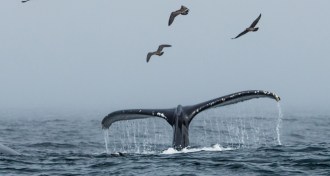 Life
LifeFins and wings alike share design features
Animals have adapted a number of different ways to swim and fly. But new research suggests that wings, fins and flukes share a couple of basic design parameters.
-
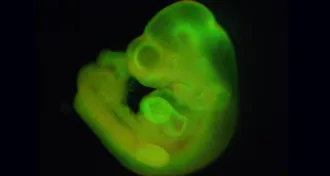 Life
LifeQuestions raised about new method for making stem cells
A January study showing that stem cells can be produced by dipping adult cells in a simple acid bath is now under investigation.
-
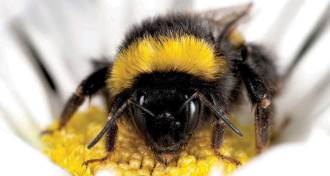 Life
LifeBig study raises worries about bees trading diseases
Pathogens may jump from commercial colonies to the wild.
By Susan Milius -
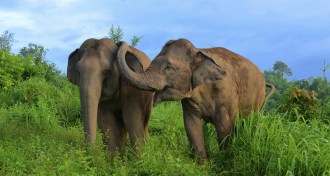 Animals
AnimalsElephants offer a reassuring touch in stressful times
Elephants seem to comfort their comrades in times of need, hinting that the animals may have the capacity for complicated mental feats such as empathy.
-
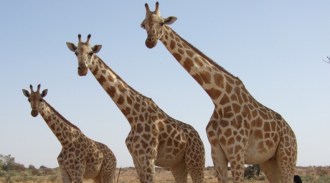 Animals
AnimalsWhy was Marius, the euthanized giraffe, ever born?
The problem of ‘surplus’ zoo animals reveals a divide on animal contraceptives.
-
 Psychology
PsychologyStress hormone rise linked to less risky financial decisions
People given cortisol chose safer options, suggesting inherent risk aversion as an overlooked variable in financial crises.
-
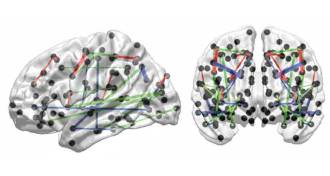 Neuroscience
NeuroscienceWhite matter scaffold offers new view of the brain
A new neural map of white matter connections may explain why some injuries are worse than others.
-
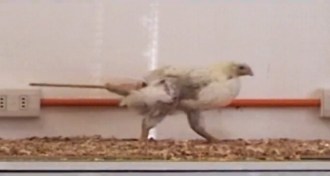 Animals
AnimalsA weighted butt gives chickens a dinosaur strut
Scientists put wooden tails on chickens to learn how small feathered dinosaurs moved, with results captured on video.
-
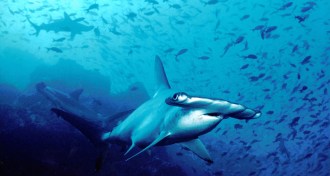 Climate
ClimateSharks could serve as ocean watchdogs
Tagged with sensors, toothy fish gather weather and climate data in remote Pacific waters.
By Beth Mole -
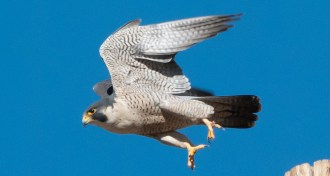 Animals
AnimalsSecret feather flaps help a falcon control its dive
The pop-up feathers of a falcon act similar to flaps on an airplane’s wing.
-
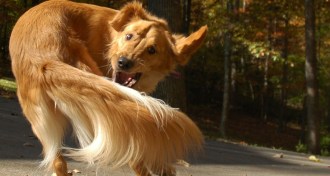 Genetics
GeneticsGenes involved in dog OCD identified
Scientists say they have identified several of the genes that trigger obsessive-compulsive disorder in Doberman pinschers, bullterriers, sheepdogs and German shepherds.